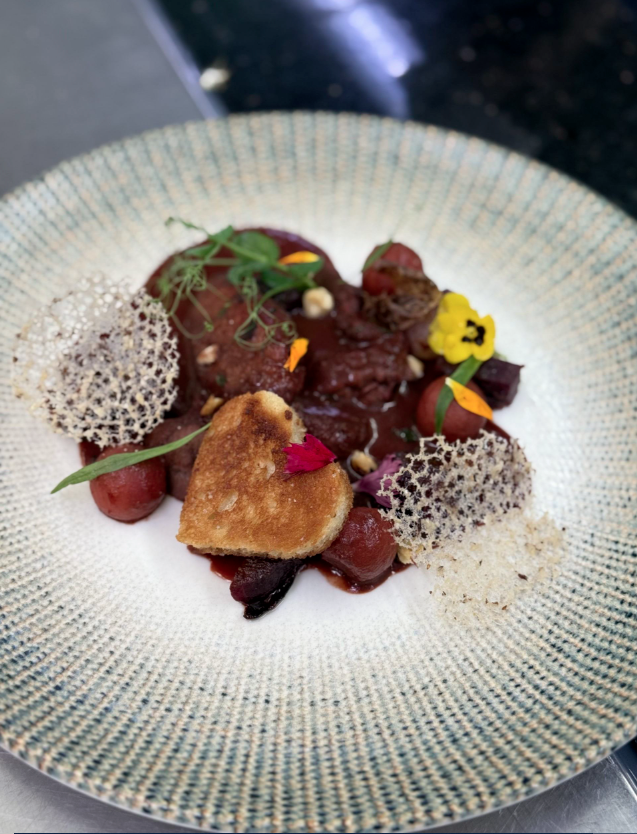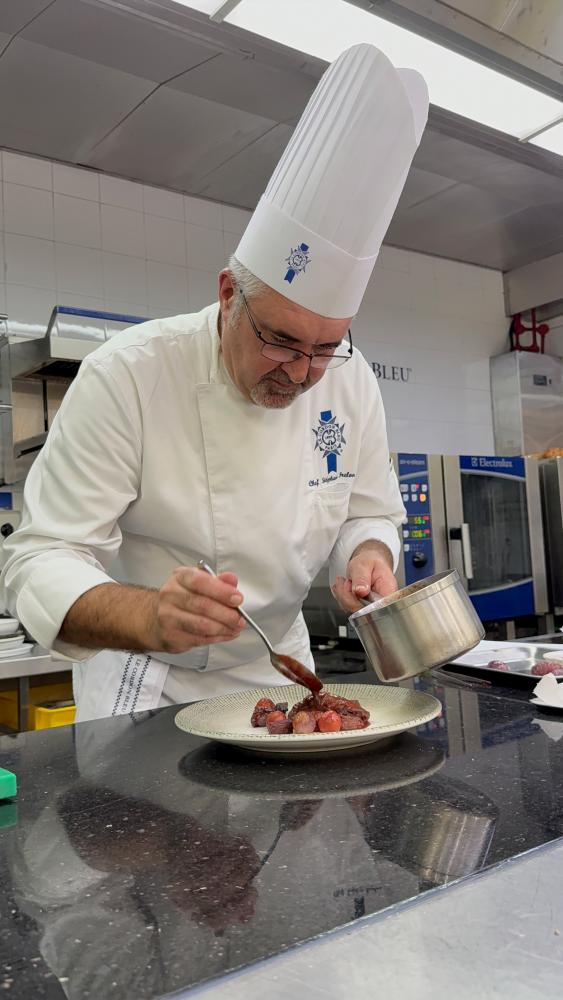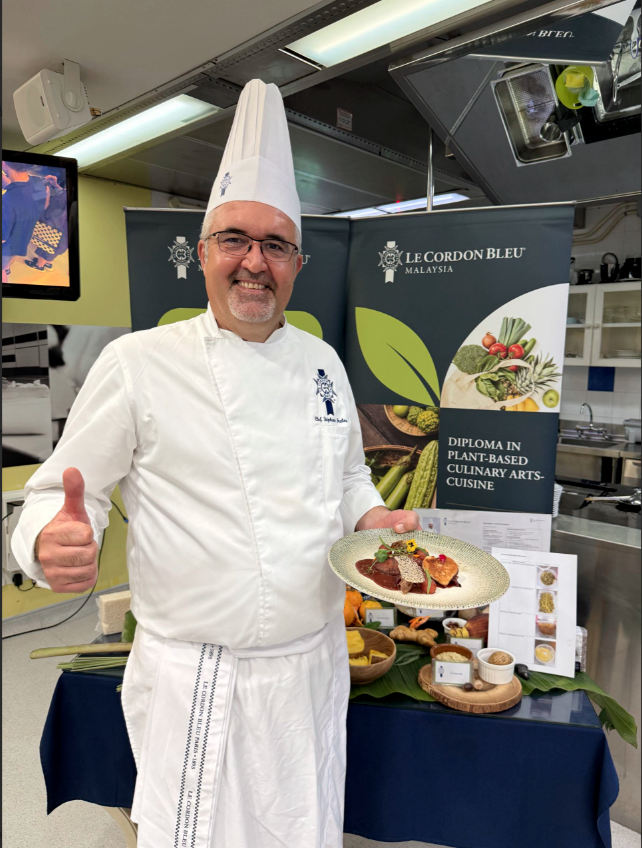One of the ways to reduce food waste is to creatively use every part of an ingredient.
As we all know, fruits, vegetables and nuts are packed with nutrients. They are often used in cooking, but their unwanted bits – skin, shell, stem, leaves, seeds and roots – end up in the rubbish bin.
However, with a bit of clever thinking, these underappreciated parts can be used to make sauces, broth or even chips.
Sunway Le Cordon Bleu executive chef and cuisine chef instructor Stephane Frelon, who has 35 years of culinary experience and worked in restaurants in France and Canada, uses every part of an ingredient, ensuring it does not go to waste.
“I use everything from A to Z from a vegetable. For example, from soybeans, we extract soy milk, tofu, and tempeh, while the dry leftover parts, we can cook or transform into meat substitutes,” said Frelon.
From hazelnut, oil is extracted, whereas skin and crumble can be turned into something edible.

The chef, who hails from Tours, France, held a cooking demonstration during a Plant-based treasures for charity event to support animal welfare at Sunway’s Le Cordon Bleu last Saturday to showcase and share creative ideas. He cooked a vegan version of the French dish beef bourguignon, made instead with lion’s mane mushroom.
The result was an exquisite dish with wonderfully curated textures.
The lion’s mane mushroom, a substitute for beef, was complemented with smoky beetroot, soft potato and a rich red sauce.
“As a chef, we need to educate the students. We can create seven items on a plate from one ingredient, such as beets or pumpkins,” he said.
But these items – whether broth, sauce, or crispy crackers – need not be “super fancy”.
According to Frelon, by educating culinary students about the need to reduce wastage, he hopes to spread the message to the public.

Beyond cooking, the chef is an advocate of reducing food wastage. He openly pondered about how grocery stores handled leftover fruits and vegetables.
“What do they do with their waste? We don’t know,” he said.
Frelon suggested that unwanted or unsold produce be sent back to farmers as food for pets or farm animals, thus reducing food wastage.
Malaysia does not lack in options when it comes to vegan and vegetarian ingredients. Frelon said Malaysians as well as other Southeast Asians have access to a huge variety of plant-based food.
The chef, who has lived in Malaysia for some time, loves laksa, rendang and, surprisingly, durian.









